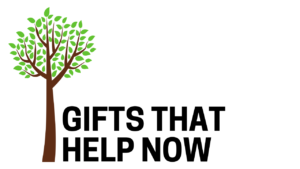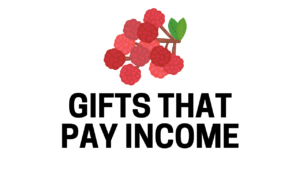Planned Giving
A Planned Giving Manual for the Wisconsin Conference UCC, by the Rev. Andrew Warner
“I am so grateful for the support Andrew has provided St. John’s. As a solo pastor at a small church I was initially daunted at the prospect of embarking on a 2.5 million Endowment Campaign. However, with Andrew’s consistent accompaniment this process has been a joy and successful beyond my dreams! Andrew brings extensive knowledge and expertise about best practices for congregational philanthropy as well as concrete tools for us to implement immediately in our context. In addition, Andrew approaches this work through the lens of faith, inspiring all of us to see our Endowment and Stewardship campaigns as an essential component of our mission to grow in our faith and serve our communities.” – The Rev. Rachel Bauman, St. John’s UCC, La Pointe (Madeline Island)
Read more: Helping St. John’s Move into a Second Century
Starting a Planned Giving Program for Your Congregation
Starting a planned giving program with the Wisconsin Conference UCC can provide for the long-term financial support of the mission and ministry of your congregation. A planned gift refers to any gift to a charity that involves a third-party professional such as a lawyer, accountant, or broker. Planned gifts can be gifts of stock, bequests, trusts, etc. These gifts usually arise from a donor’s desire to make a significant or lasting impact for a charity or cause they support. Typically, planned gifts involve a tax savings. Be sure to seek out your own legal and financial advisors when making a planned gift.
the long-term financial support of the mission and ministry of your congregation. A planned gift refers to any gift to a charity that involves a third-party professional such as a lawyer, accountant, or broker. Planned gifts can be gifts of stock, bequests, trusts, etc. These gifts usually arise from a donor’s desire to make a significant or lasting impact for a charity or cause they support. Typically, planned gifts involve a tax savings. Be sure to seek out your own legal and financial advisors when making a planned gift.
The Wisconsin Conference helps congregations develop and sustain planned giving programs. Through strategic reflection, engaging many pastors and lay leaders, the conference realized congregations needed guidance, education, and practical assistance to make the wide array of planned giving opportunities available to their communities.
The Wisconsin Conference asks congregations participating in the planned giving program to covenant with the Conference to share future bequests. In this covenant, congregations agree to share 10% of unrestricted planned gifts with the Conference; it also means the congregation will encourage those making restricted gifts to include a portion for the Conference. While a donor can always restrict a gift in ways they desire, the congregation would be expected to include and affirm this covenant in its communication about planned gifts and the planned giving program. The Conference Board of Directors would be open to conversation about how best to use any gifts shared from a bequest or planned gift to a congregation.
Three Key Stages of Starting a Planned Giving Program
Preparing: A leadership team from a congregation works with Rev. Andrew Warner of the Wisconsin Conference UCC to develop a specific plan for the congregation. During the preparation stage, Andrew will help the leaders understand planned gifts, review the policies of the congregation and make suggestions as needed, and develop the covenant between the congregation and the Conference. Congregational leaders will think about their goals for the program, imagine how gifts could be used, and identify people who might be willing to make an early commitment to the program (i.e. make a planned gift).
Educating: Andrew, working with the leadership team, will conduct an education session with interested community members, including some one-on-one visits when appropriate. Typically, several congregations work on planned giving at the same time so that members have many options of when to attend an educational session. Even after the first launch of the planned giving program in your congregation, Andrew will continue to be available to provide on-going education for community members.
Connecting: As people in a congregation make a planned gift, they will be invited to join the Legacy Society of the Wisconsin Conference UCC. The Legacy Society provides a way to connect who’ve made a planned gift designation to each other and to nurture that commitment over time. A planned gift usually represents the largest gift someone will make and usually takes years before its received; a “legacy” society or some similar named group becomes a way to continue to grow the relationship between the donor and the congregation. Members of the Legacy Society can be the strongest advocates for planned giving within their congregations and the Conference as a whole.
|
For more information, please email Rev. Andrew Warner or call (414) 758-6233.
Planned Gifts Can Be…
- Outright Gifts
- IRA Charitable Rollover
- Donor Advised Fund
- Bargain Sale
Such as:
- Bequests in Wills
- Revocable Trusts
- Retirement Plan or Insurance Beneficiary Designation
- Payment or Transfer on Death of Stocks or Real Estate
- Charitable Gift Annuity
- Charitable Remainder Unitrust
Depending on the gift type, these options can be irrevocable (Permanent) or revocable (Changeable).






Sign up for our newsletter!
Find us on
Contact Us